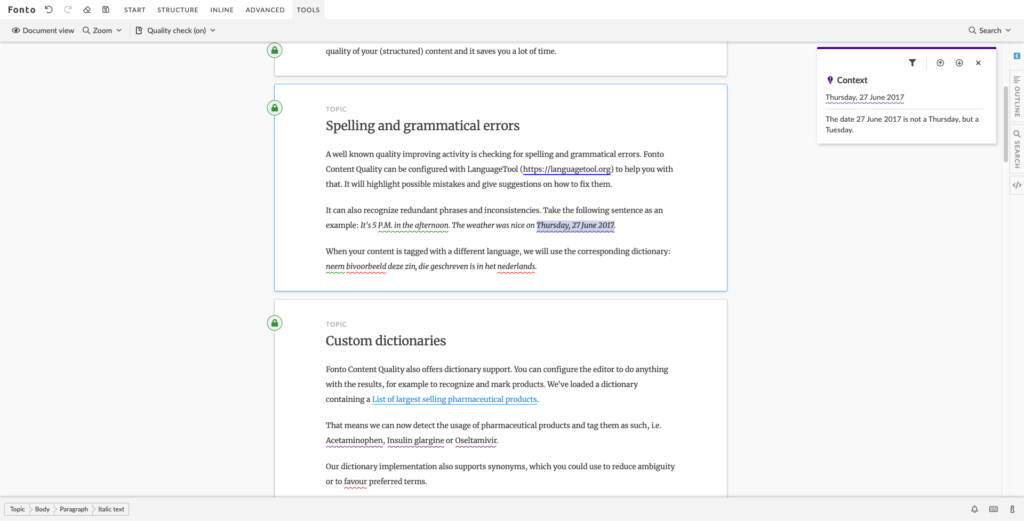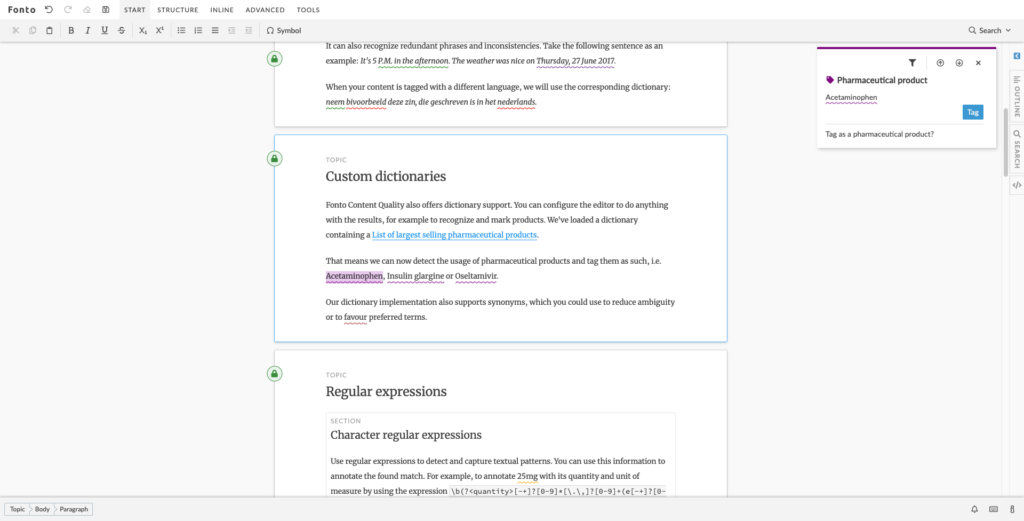In ‘The Future of Documents’ report, Forrester predicts that by 2027, “robots share the writing credits with humans.” This sounds very futuristic, although it’s already part of the game nowadays. Think of autocorrect, type-ahead suggestions or even grammar checks. All these features are artificial intelligence tools that help authors produce better content. And even more futuristic, there are tools that generate complete articles based upon the input of just some keywords.
Auto-generated articles
The auto-generated article is of course the most futuristic outlook. If an article can be written by just putting in some keywords in a tool, why would you need an author at all? Auto-generated articles are based upon natural language processing and prediction models like GPT-3 by OpenAI. Over the past few years, these natural language processing models have made a big step forward. They are implemented in several solutions, for example in summarizing content or giving context to documents.
Generating a complete article is, still, another game. This blog post by Max Woolf gives some good examples of auto-generated articles that vary in quality. Natural language processing tools are able to answer common questions, although if your input is nonsense, you’ll get a nonsense result in return. It’s still a giant leap before this will become the norm, surely not by 2027.
Improving content with Fonto Content Quality
A smaller step, although definitely contributing to the quality of content written by authors, is providing services that assist authors with writing better content. A spell checker is the most widely used variant of such a service, more advanced tooling can recognize redundant phrases and inconsistencies.
Fonto Content Quality makes it possible to integrate and manage such (third-party) tools that help the author to improve content quality and work more efficiently. It’s not so much a robot but more like an assistant that provides real-time feedback on the content while writing.

A solution like LanguageTool can be of help to the author, by providing feedback on spelling, grammar and style.

More advanced still, LanguageTool also recognizes some complex factual and contextual errors: the above example shows ‘Thursday, 27 June 2017’ flagged because this specific date was a Tuesday. These mistakes won’t be caught by ordinary spellcheckers, like Microsoft Word’s.
Adding structure to documents
Another way to assist authors in writing better content, is automatic content tagging. This helps writers move from unstructured content to structured content. For example, in a pharmaceutical document, recognizing pharmaceutical products based upon a custom dictionary and semantic tagging of these products could be a first step to move away from unstructured documents.

For this Fonto Content Quality offers dictionary support. You can configure the editor to do anything with the results, for example to recognize and mark pharmaceutical products. Authors can easily tag these products and within the XML, the product will be directly recognized.
Another way of moving from unstructured content to structured content is by smart pattern recognition. This can be based upon regular expressions and XPath expressions. In the example below, Fonto Editor has been configured with an expression that matches a quantity followed by a pharmaceutical product. This helps us suggest tagging 25mg Aripiprazole as a dosage form.

Consistent language and style over all communication
With third-party solutions, it is possible to optimize consistency and clarity in communication over all documents. Fonto Content Quality offers the ability to connect Acrolinx, PoolParty, LanguageTool, and many other such services with Fonto Editor, and ensures that all content is consistent, clear and on-brand. With direct feedback while creating content, ‘AI assistants’ can definitely contribute to the quality of the produced content!
Thank you, robots!
Will robots share the writing credits with humans in the near future? Not if you expect them to write a full article – although having artificial intelligence assistance will definitely contribute to well-written and well-structured content.
Image credits: Laura Musikanski / Pexels

Customer Success Manager at Fonto – Passionate runner and Dad
